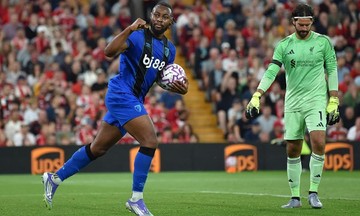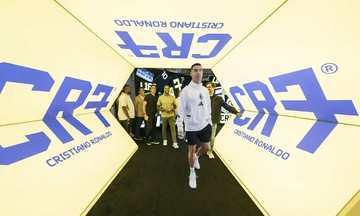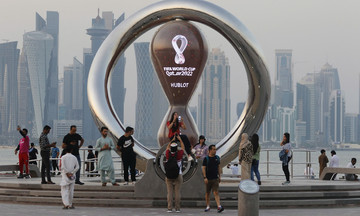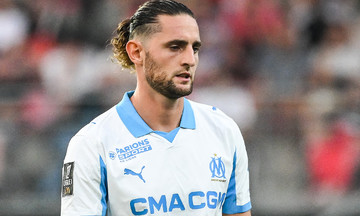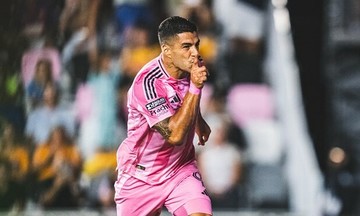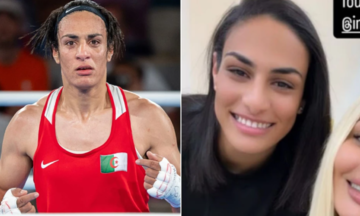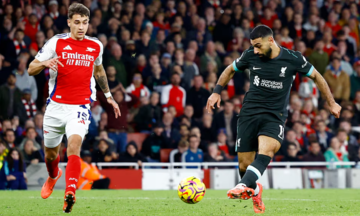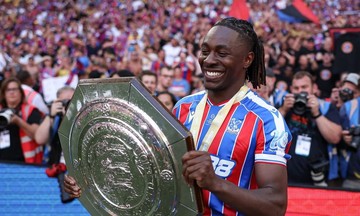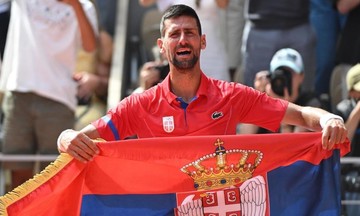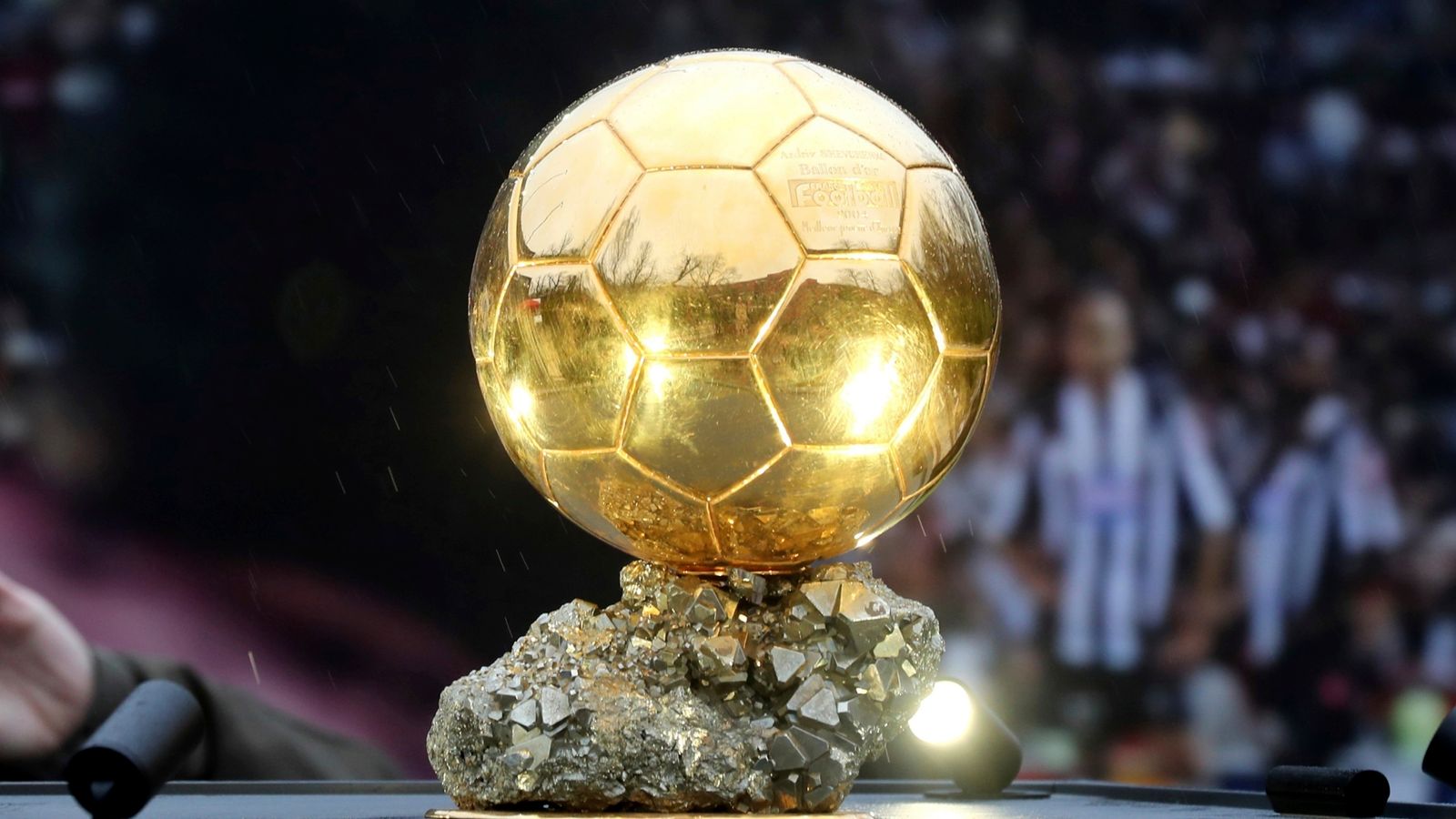 |
The Ballon d'Or ceremony will take place on 22/9/2025 at the Chatelet Theater in Paris, France. |
Editions Philippe Amaury (EPA), also known as Groupe EPA or Groupe Amaury, is a French private media group founded by Philippe Amaury (1940–2006). His wife, Marie-Odile Amaury, owns the majority of the company's shares. The current CEO is their daughter, Aurore Amaury.
Groupe Amaury currently owns two leading French sports publications: the daily newspaper L'Equipe and the magazine France Football. Since 1956, France Football has established and managed the Ballon d'Or award, originally the European Footballer of the Year award.
Since 2024, the Ballon d'Or ceremony has been jointly organized by the Union of European Football Associations (UEFA) and Groupe Amaury, but the voting system and brand remain under Groupe Amaury's ownership, under the France Football label.
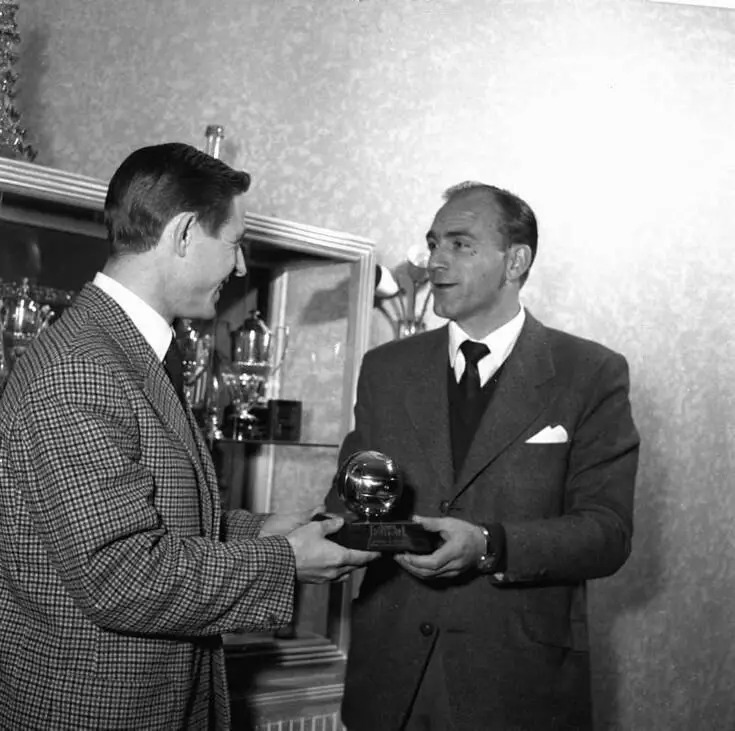 |
Real Madrid legend Alfredo Di Stefano (right) receives the 1957 Ballon d'Or. Photo: France Football |
Real Madrid legend Alfredo Di Stefano (right) receives the 1957 Ballon d'Or. Photo: France Football
Evolution through time
From 1956 to 1994, only European players were eligible for the award. The jury members were also limited to European journalists. Consequently, the list of Ballon d'Or winners during this period consisted entirely of European players, with a dominance of those from Real Madrid, Barcelona, Manchester United, Ajax, Bayern Munich, Juventus, and AC Milan.
In the following 12 years, from 1995 to 2006, the eligibility criteria expanded to include players from any country, provided they played for a club in Europe – a member of UEFA. The jury remained composed of reputable European journalists. George Weah became the first non-European player to win the award in 1995, after transferring from PSG to AC Milan.
From 2007 to 2015, all players worldwide could be nominated, regardless of the federation their club belonged to. Consequently, the voting panel expanded to include journalists, national team captains, and coaches. Kaka was the first winner in this era of "globalization."
Specifically, from 2010 to 2015, FIFA collaborated with France Football to co-organize the award, then called the FIFA Ballon d'Or.
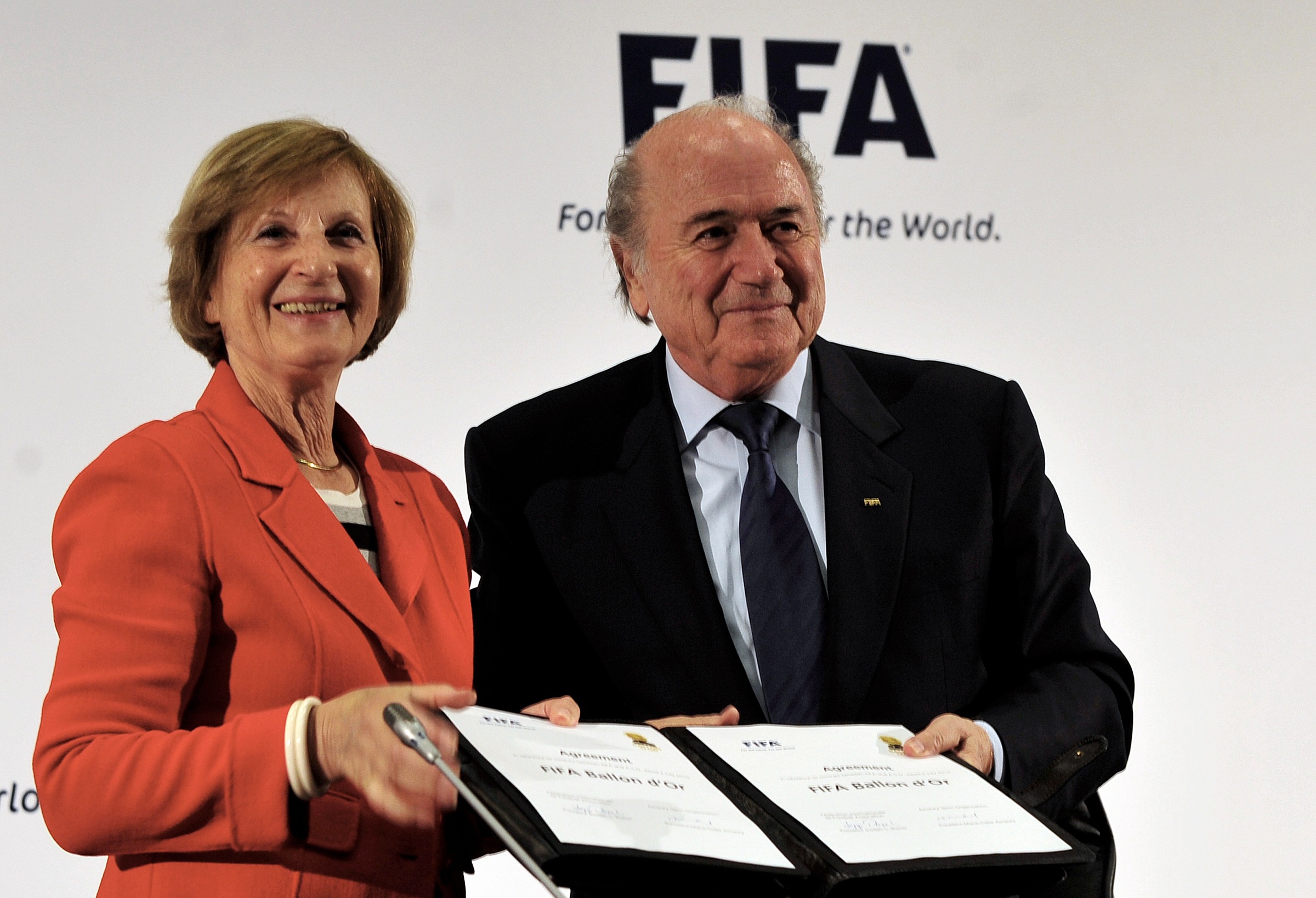 |
Marie-Odile Amaury and FIFA President Sepp Blatter announce the FIFA Ballon d'Or partnership in 2010. Photo: AFP |
Marie-Odile Amaury and FIFA President Sepp Blatter announce the FIFA Ballon d'Or partnership in 2010. Photo: AFP
From 2016 to 2021, after the partnership with FIFA ended, France Football decided to revert the award to its original format. Maintaining the global scope, the magazine organized a jury consisting of 173 journalists from different countries. Each juror voted for three players, awarding 5, 3, and 1 points, respectively. The nomination list was expanded to 30 players, without a final three shortlist before the ceremony. The evaluation criteria were based on a calendar year, encompassing half a season from two football seasons in most major leagues.
Currently, FIFA organizes its own award, the FIFA The Best Player Award. However, due to this new award's lack of history, France Football's Ballon d'Or is still considered more prestigious.
From 2022, the most significant change implemented by France Football was abandoning the calendar year calculation. Instead, it adopted the traditional European football season: spanning from August of the previous year to around July of the following year (if national team tournaments occur after the club season).
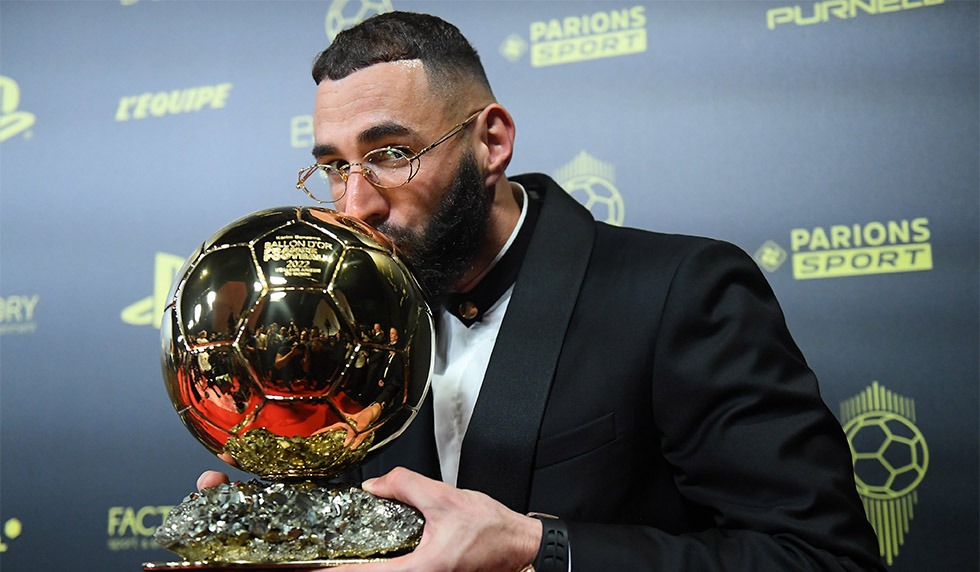 |
Benzema kisses the 2022 Ballon d'Or. Photo: France Football |
Benzema kisses the 2022 Ballon d'Or. Photo: France Football
Furthermore, the jury was reduced to 100 international journalists representing each country with a national team in FIFA's top 100. For the women's category, it's the top 50. Voting criteria are now primarily based on individual performance and achievements, followed by collective achievements, and finally, style and fair play. The list of 30 nominees now involves the selection of former football stars. The top three finalists remain undisclosed until the award ceremony.
Karim Benzema was the first Ballon d'Or winner in this new era.
The Messi-Ronaldo era
In 2007, when the Ballon d'Or first expanded its scope globally with a worldwide voting panel, it also marked the first time two future icons—Ronaldo and Messi—appeared on the podium. They finished second and third, respectively, behind Kaka. This marked the beginning of the Messi-Ronaldo era, with them dominating or alternating on the award podium.
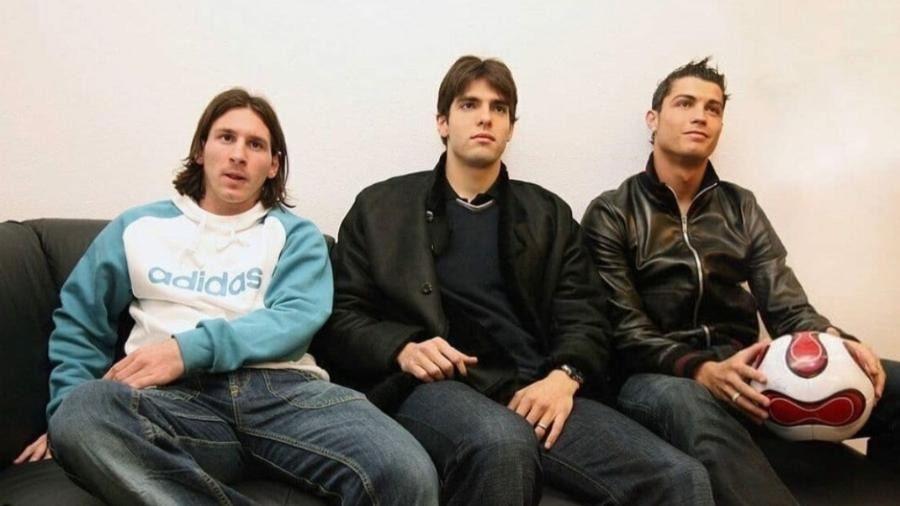 |
2007 marked the beginning of the Ronaldo-Messi era for the Ballon d'Or, but that year, both finished behind Kaka. Photo: AFP |
2007 marked the beginning of the Ronaldo-Messi era for the Ballon d'Or, but that year, both finished behind Kaka. Photo: AFP
After two years behind Ronaldo, with the Portuguese superstar winning his first Ballon d'Or in 2008, Messi took the lead in 2009.
From 2010 to 2015, during the FIFA Ballon d'Or era, with the jury including national team captains and coaches, Messi dominated Ronaldo with a 4-2 score. Notably, both Messi and Ronaldo, as national team captains, had voting rights during the FIFA Ballon d'Or period, but they never voted for their direct rival.
When France Football stopped sharing the Ballon d'Or with FIFA, Ronaldo "kicked things off" brilliantly. In 2016, he not only became the European player with the most Ballon d'Or awards in history (4), but also achieved a record-breaking point difference: 745 out of a total of 865 points, surpassing second-placed Messi by 429 points.
A year later, Ronaldo equaled Messi's record of 5 Ballon d'Or awards. However, Messi then surged ahead with three more Ballon d'Ors, setting a new record for the award.
From 2007 to 2019, when both Messi and Ronaldo last appeared in the top three, each missed the podium once in 13 years. For Ronaldo, it was 2010, due to the dominance of the Barcelona trio (Messi, Iniesta, and Xavi). For Messi, it was 2018 when Luka Modric broke their dominance to win, with Ronaldo and Griezmann finishing second and third, respectively.
In 2022, Benzema became the first French Ballon d'Or winner since Zinedine Zidane in 1998. Some have argued that this marked the definitive end of the Messi-Ronaldo era for this prestigious individual award. However, Messi "managed" to extend it for another year, thanks to Argentina's World Cup victory later that year.
Messi and Ronaldo won 13 Ballon d'Ors between 2008 and 2023.
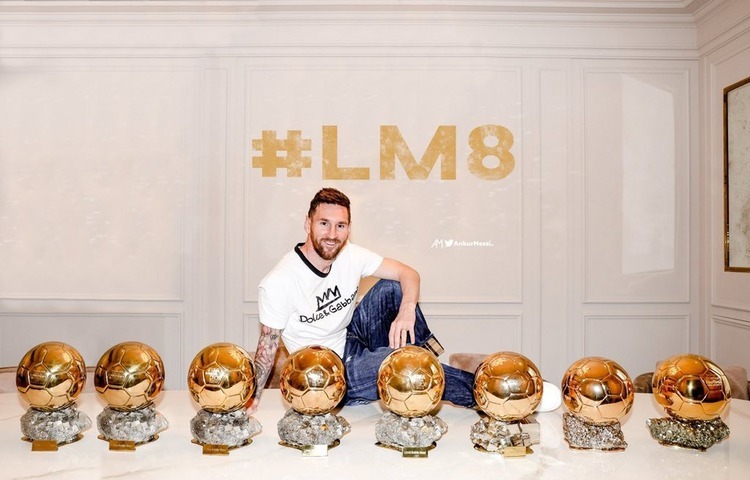 |
Overall, Messi and Ronaldo's dominance spanned the three most important periods of the Ballon d'Or: from traditional voting by journalists, through the period of unification with FIFA, to the current phase with international journalists and new voting criteria considering a single season.
2025 marks the second consecutive year that these two legends are absent from the nomination list. With both Messi and Ronaldo having left top-level European club football, their advantage, if any, in the Ballon d'Or race will depend largely on their national team performances and achievements. The 2026 World Cup in the US might be their last chance.
Compiled by Hoang Thong



